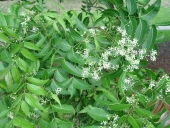
 2
2




 1
1




My Food Forest - Mile elevation. Zone 6a. Southern Idaho <--I moved in year two...unfinished...probably has cattle on it.




It's never too late to start! I retired to homestead on the slopes of Mauna Loa, an active volcano. I relate snippets of my endeavor on my blog : www.kaufarmer.blogspot.com
 1
1




"The rule of no realm is mine. But all worthy things that are in peril as the world now stands, these are my care. And for my part, I shall not wholly fail in my task if anything that passes through this night can still grow fairer or bear fruit and flower again in days to come. For I too am a steward. Did you not know?" Gandolf
 1
1









Hans Albert Quistorff, LMT projects on permies Hans Massage Qberry Farm magnet therapy gmail hquistorff

















|
Wait for it ... wait .... wait .... NOW! Pafiffle! A perfect tiny ad!
3D Plans - Solar Food Dehydrator with Rocket Boost - Pre-Order
https://permies.com/wiki/193722/Plans-Solar-Food-Dehydrator-Rocket
|


